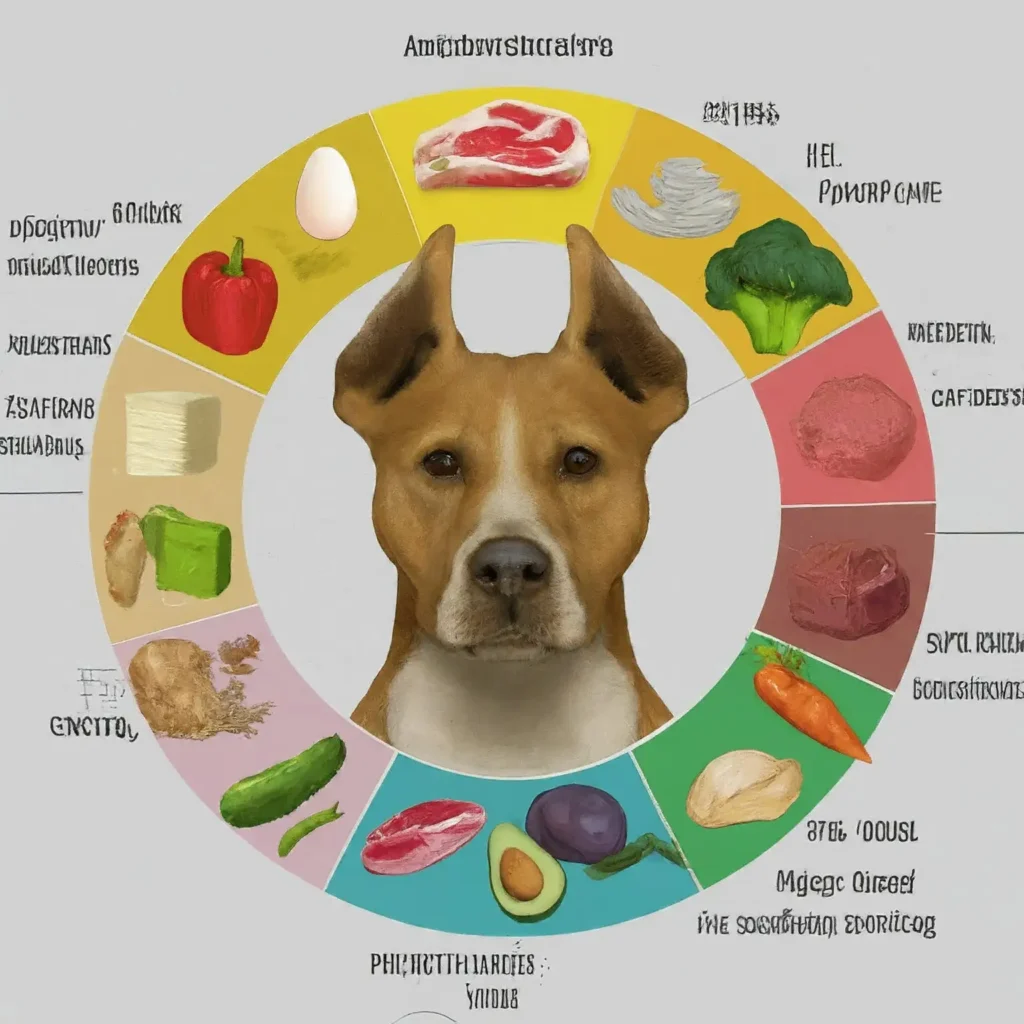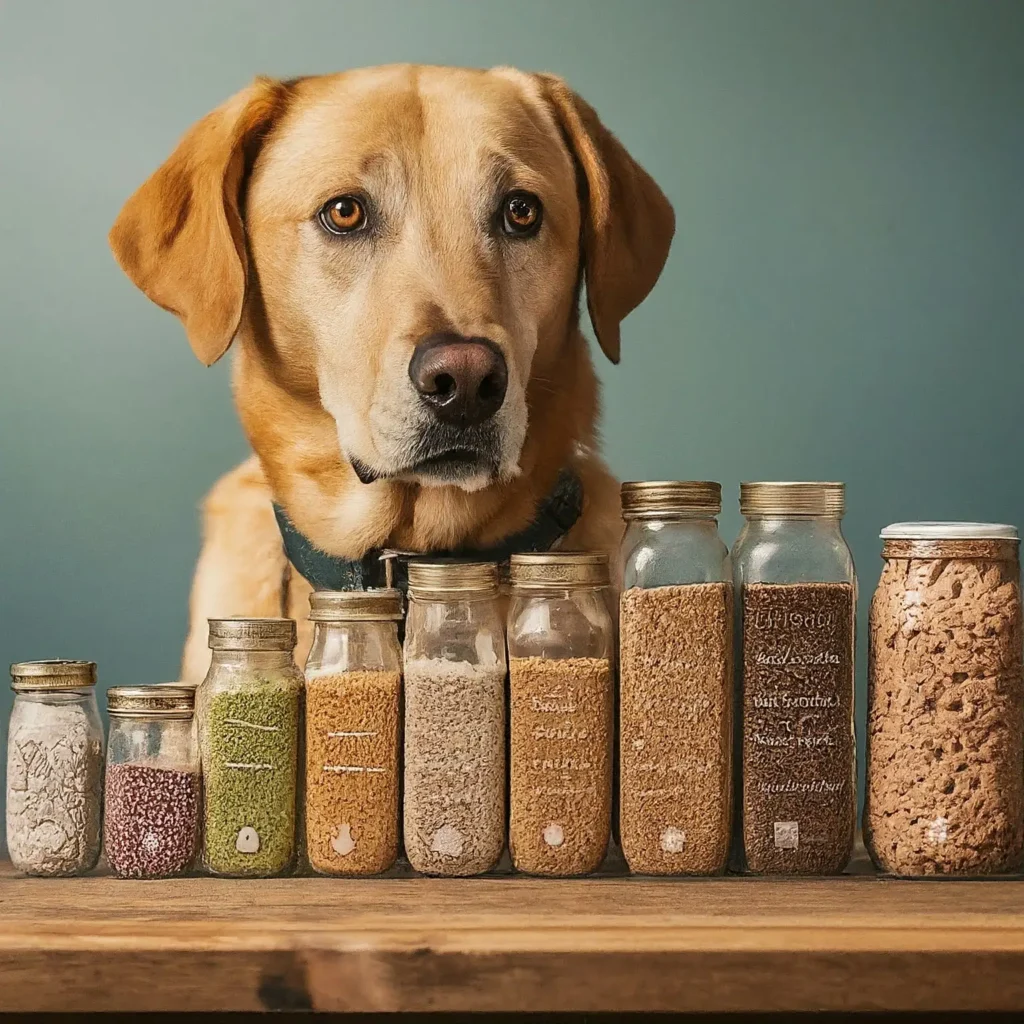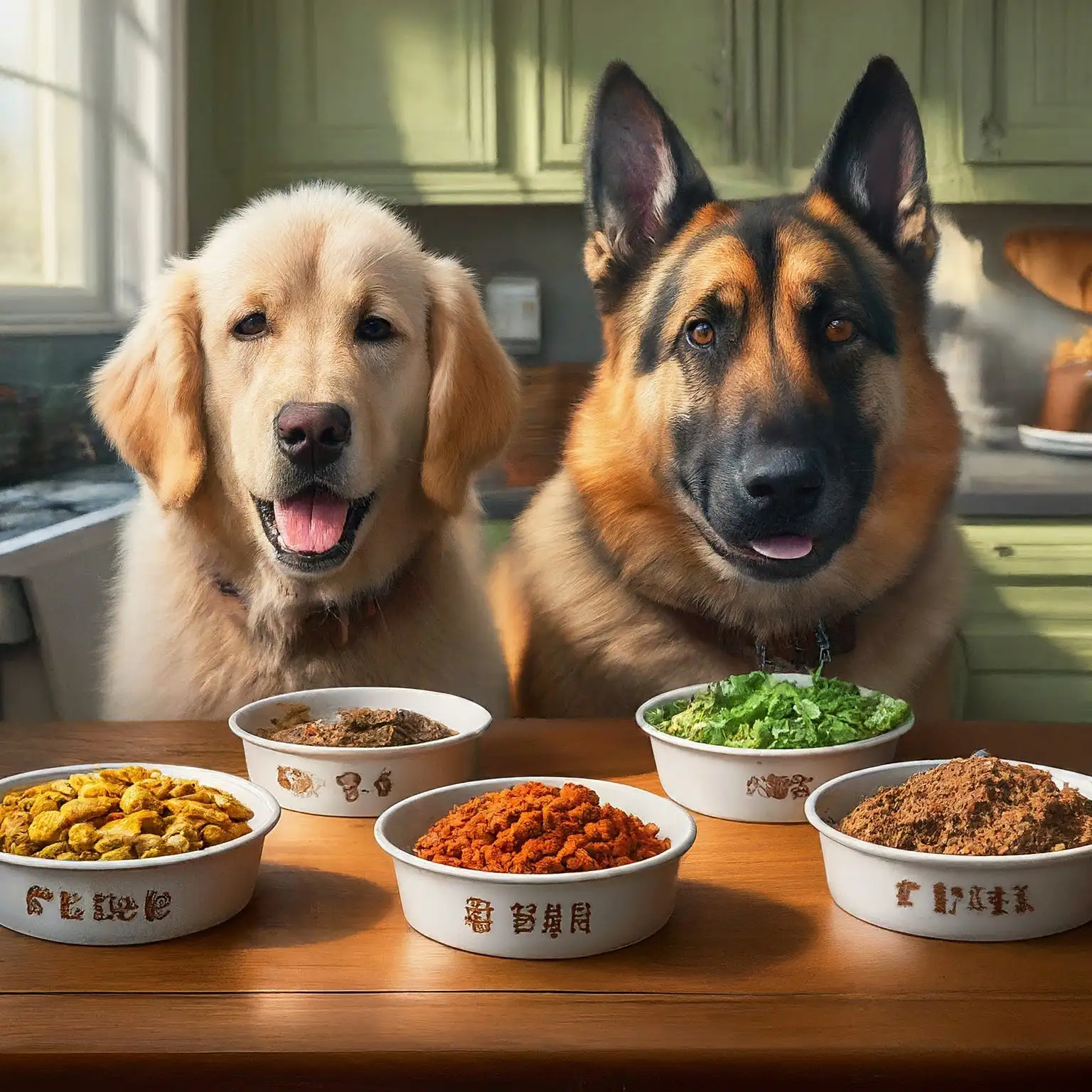Introduction to Homemade Dog Food
Homemade Dog Food: The trend of preparing homemade meals for pets has been gaining momentum among dog owners who are increasingly concerned about their furry companions’ health and well-being. This movement is driven by a desire to offer dogs a diet that’s free from the preservatives and additives commonly found in commercial pet foods. By choosing the DIY route, pet lovers can have complete control over the ingredients, ensuring their pets consume only the freshest and most nutritious meals.
Creating your dog’s meals can be a deeply rewarding experience, allowing for a stronger bond as you cater to their dietary needs with love and care. It’s an opportunity to tailor their diet specifically to their health requirements, taste preferences, and any allergies or sensitivities they might have. This personalized approach ensures that every meal is not just nourishing but also enjoyable for your pet.
However, embarking on the journey of homemade dog food requires a commitment to understanding canine nutritional needs. It’s not as simple as sharing your dinner with your dog; their dietary requirements are distinct and must be met with precision. A well-planned homemade diet can lead to improved health outcomes, such as better coat quality, more energy, and fewer digestive issues, making it a worthwhile endeavor for dedicated pet parents.
Benefits of a Homemade Diet for Dogs

Opting for a homemade diet for your dog brings with it a plethora of health benefits that can contribute significantly to their overall well-being. One of the most compelling advantages is the ability to use whole, fresh ingredients, which can lead to better digestion and absorption of nutrients. This natural approach to feeding can result in a shinier coat, healthier skin, and more energy, reflecting the quality of the diet in your pet’s physical condition.
Another benefit of homemade dog food is the exclusion of artificial preservatives, colors, and flavors that are often present in commercial pet foods. These additives can sometimes lead to adverse reactions or allergies in dogs. By preparing your pet’s meals yourself, you can ensure that every ingredient serves a nutritional purpose, supporting their health without unnecessary chemicals.
Moreover, customizing your dog’s diet to suit their unique needs is an invaluable advantage of going homemade. Whether your dog is a picky eater, has specific dietary restrictions, or needs a particular nutrient mix to support health conditions, a homemade diet allows you to adjust ingredients and portions to meet these requirements. This level of customization ensures that your dog is not just eating but thriving on a diet that’s tailored to them.
Nutritional Requirements for Dogs

Understanding the nutritional landscape is crucial for anyone considering homemade dog food. Dogs, like humans, require a balanced diet that includes proteins, fats, carbohydrates, vitamins, and minerals. However, the proportions and types of these nutrients can vary significantly from those in a human diet. For example, dogs need more protein and certain fats that support their energy levels, joint health, and coat condition.
It’s also vital to recognize that dogs have specific nutritional needs at different stages of their life. Puppies, adults, and senior dogs all require variations in their diet to support their changing energy levels and health requirements. For instance, puppies need more calories and specific nutrients to support their rapid growth, while older dogs might benefit from a diet lower in calories but rich in joint-supporting supplements.
Consulting with a veterinarian or a canine nutritionist is an indispensable step in creating a balanced homemade diet for your dog. These professionals can provide guidance on the necessary nutrient composition and help you design a meal plan that meets your dog’s individual needs. This collaborative approach ensures that your homemade diet not only satisfies your dog’s palate but also supports their health and longevity.
Risks and Considerations
While the benefits of a homemade diet are plentiful, there are also risks and considerations that should not be overlooked. One of the primary concerns is the potential for nutritional imbalances. Without proper knowledge and careful planning, it’s easy to create meals that lack essential nutrients, which can lead to health problems over time. For example, a diet deficient in calcium can result in poor bone development, while a lack of certain vitamins can lead to various deficiencies.
Another important consideration is the risk of including harmful ingredients in your dog’s diet. Certain foods that are perfectly safe for humans can be toxic to dogs, such as onions, garlic, and chocolate. It’s crucial to research and double-check every ingredient to ensure it’s safe for canine consumption.
Transitioning your dog to a homemade diet should be done gradually to avoid digestive upset. Sudden changes in diet can lead to diarrhea, vomiting, or other gastrointestinal issues. Starting with small amounts of homemade food mixed with their current diet and gradually increasing the proportion over several weeks can help ease this transition and allow your dog’s digestive system to adjust.
Simple and Nutritious DIY Dog Food Recipes
Embarking on the journey of preparing homemade dog food can be exciting, and starting with simple, nutritious recipes is key. A basic recipe might include a lean protein source like chicken or turkey, a carbohydrate such as brown rice or sweet potatoes, and a variety of vegetables like carrots, peas, and
spinach. These ingredients can be cooked and mixed together to provide a balanced meal that’s rich in essential nutrients.
When preparing homemade meals, it’s important to consider the cooking methods. Steaming or boiling without added fats or seasonings is often best to preserve the nutritional content of the ingredients. Once cooked, the food can be portioned into daily servings and stored in the refrigerator or freezer to maintain freshness.
Portion control is crucial in homemade dog feeding. Overfeeding can lead to obesity and related health issues, while underfeeding can result in nutritional deficiencies. Consulting with a vet to determine the appropriate portion size based on your dog’s weight, age, and activity level can help you ensure that your pet is getting just the right amount of food.
Supplementing a Homemade Diet
While a well-planned homemade diet can provide most of the nutrients your dog needs, there might be cases where supplements are necessary. Essential fatty acids, for instance, are crucial for skin and coat health and might need to be supplemented if the diet doesn’t provide enough. Vitamins and minerals, particularly calcium, might also need to be added to ensure a balanced diet.
It’s important to approach supplementation with caution. Over-supplementation can be just as harmful as a deficiency, leading to health issues like vitamin toxicity. Consulting with a veterinarian before adding any supplements to your dog’s diet is essential to avoid unintended consequences.
In some cases, specific health conditions may require targeted supplementation. For instance, dogs with joint issues might benefit from glucosamine and chondroitin supplements. Again, professional guidance is key to determining what supplements, if any, are appropriate for your dog’s homemade diet.
Cost Comparison: Homemade vs. Commercial Dog Food

One of the common considerations for pet owners contemplating a homemade diet is the cost implication. At first glance, homemade dog food might seem more expensive due to the price of high-quality ingredients. However, when considering the long-term health benefits and potential savings on veterinary bills due to improved health, the cost can be comparable or even lower than commercial diets.
Bulk buying and seasonal shopping can further reduce the cost of homemade dog food. Purchasing ingredients in bulk, especially when they are on sale, and using seasonal vegetables can help manage expenses without compromising on quality.
It’s also worth considering the time investment as part of the cost. Preparing homemade dog food can be time-consuming, and for busy pet owners, this might be a significant factor. However, many find the process rewarding and a way to further bond with their pets, making it a worthwhile investment.
When to Stick with Commercial Dog Food

Despite the many benefits of homemade diets, there are scenarios where commercial dog food might be the better choice. For dogs with specific health conditions requiring therapeutic diets, the precision and consistency of commercial foods can be crucial. These diets are formulated with exact nutrient ratios to manage health issues like kidney disease, diabetes, and obesity, and replicating this balance at home can be challenging.
Additionally, for pet owners with limited time or resources, high-quality commercial dog foods offer a convenient and balanced alternative. Many premium brands provide nutritionally complete and balanced options that cater to different life stages, sizes, and health requirements.
It’s also worth noting that not all homemade diets are created equal. Without proper knowledge and careful planning, a homemade diet can do more harm than good. In such cases, sticking with a trusted commercial brand might be the safest option to ensure your pet’s nutritional needs are met.
Conclusion

Deciding between a homemade or commercial diet for your dog is a significant decision that should be made with careful consideration and professional guidance. Homemade diets offer numerous benefits, including the use of whole, fresh ingredients and the ability to tailor the diet to your pet’s specific needs. However, they also require a commitment to understanding canine nutrition and the potential risks involved.
Whether you choose to prepare your dog’s meals or opt for a commercial diet, the most important factor is ensuring that your pet receives all the necessary nutrients to live a healthy, happy life. Consulting with a veterinarian or a canine nutritionist can provide valuable insights and help you make the best choice for your furry friend.
FAQs about Homemade Dog Food
Q: Can I feed my dog a vegetarian or vegan diet?
A: While dogs can technically survive on a carefully planned vegetarian or vegan diet, it’s challenging to meet all their nutritional needs this way. Consultation with a veterinary nutritionist is essential if you’re considering this route.
Q: How often should I feed my dog homemade meals?
A: The frequency of meals depends on your dog’s age, size, and activity level. Most adult dogs do well with two meals a day, while puppies may require three or more smaller meals.
Q: Can I use leftovers from my meals for my dog’s diet?
A: While it might be tempting to share leftovers with your pet, many human foods contain ingredients that can be harmful to dogs. It’s best to prepare meals specifically for your dog, ensuring all ingredients are safe and nutritious for them.




